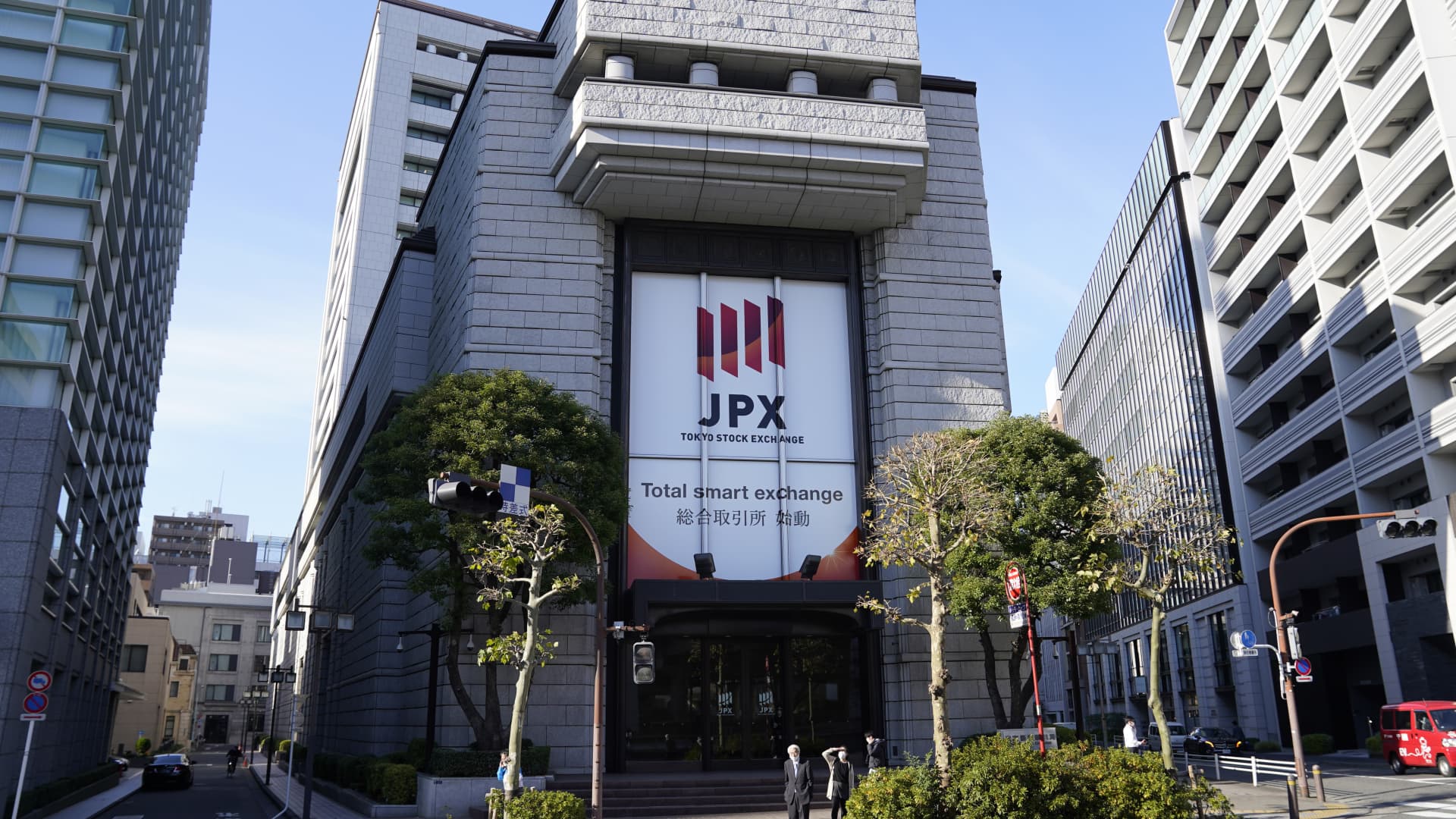Hong Kong’s Hang Seng Tech index dropped on Monday as major indexes in Asia-Pacific slipped. The U.S. will have a busy week with the Federal Reserve meeting midweek and second-quarter gross domestic product data due Thursday stateside. Over the weekend, the World Health Organization declared monkeypox a global health emergency. SINGAPORE — Hong Kong’s Hang Seng Tech index dropped on Monday as major indexes in Asia-Pacific slipped.
The Hang Seng index in Hong Kong fell 0.22% to close 20,562.94, and the Hang Seng Tech index lost 1.38%.
The Financial Times reported over the weekend that China plans to sort U.S.-listed Chinese companies into three groups depending on the sensitivity of the data the firms hold.
The new system aims to prevent American regulators from delisting Chinese companies by bringing some firms into compliance with the U.S. rules, the FT reported, citing people with knowledge of the situation. Chinese firms with “secretive” data would have to delist, the report said.
China’s securities regulator told CNBC it has not come up with a three-tiered system to help Chinese companies avoid U.S. delisting.
Hong Kong shares of U.S.-listed Chinese companies dropped on Monday. Nio plunged 6.42%, XPeng lost 6.3% and Alibaba fell 2.45%.
Mainland China markets were also lower. The Shanghai Composite slipped 0.60% to 3,250.39, and the Shenzhen Component shed 0.83% to 12,291.59.
With the focus on the US FOMC meeting, Asian assets will likely trade mixed in the early part of the week with stagflation risks staying top-of-mind. Venkateswaran Lavanya ECONOMIST, MIZUHO BANK The Nikkei 225 in Japan declined 0.77% to 27,699.25 and the Topix index lost 0.65% to 1,943.21.
In South Korea, the Kospi bucked the trend to rise 0.44% to 2,403.69, while the Kosdaq was about flat at 789.69.
Australia’s S&P/ASX 200 was fractionally lower at 6,789.9.
MSCI’s broadest index of Asia-Pacific shares outside of Japan was down 0.44%.
The Monetary Authority of Singapore on Monday said core inflation in June rose to 4.4% compared to a year ago, up from 3.6% in May and higher than the 4.2% that economists polled by Reuters expected.
“The rise in core inflation reflected stronger price increases across the broad categories of services, food, retail & other goods, as well as electricity & gas,” the MAS and Singapore’s trade ministry said in a statement.
Stock picks and investing trends from CNBC Pro: Earnings playbook: The investing game plan as Apple and Alphabet lead the busiest week of the season
These options ideas are smart ‘stock replacements’ during earnings, Goldman says
Morgan Stanley’s Wilson predicts the S&P 500 trough: It will come ‘pretty quickly’
Over the weekend, the World Health Organization declared monkeypox a global health emergency. The organization’s emergency committee was unable to reach a consensus, but WHO chief Tedros Adhanom Ghebreyesus made the decision to issue the highest alert, though he said it is unlikely to disrupt global trade or travel at the moment.
Later this week, all eyes will be on the Fed rate decision and the release of second quarter gross domestic product data in the U.S.
Expectations for a 75 basis point move in July stood at 76.3%, according to the CME Group’s FedWatch Tool.
“With the focus on the US FOMC meeting, Asian assets will likely trade mixed in the early part of the week with stagflation risks staying top-of-mind,” Venkateswaran Lavanya, an economist at Mizuho Bank, wrote in a note Monday.
Within the Asia-Pacific region, advance estimates for South Korea’s GDP will be out Tuesday and Australia reports inflation data Wednesday.











